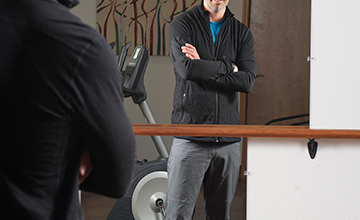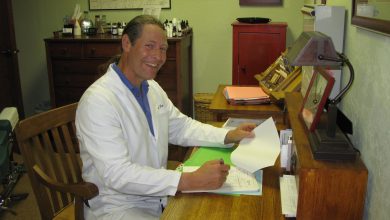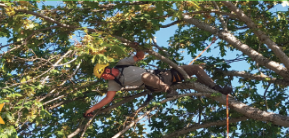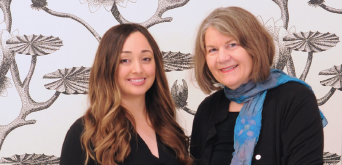Annie Hoy – Ashland Food Co-op
First off I would like to thank you and all the veterans of the Ashland Food Coop.The coop stands as a strong model for how a Community Food Cooperative can function and as I understand it, you have played a role in this for a long time.
Can you give us a little history of the Ashland Food Co-op. When and how it was started?
Ashland Food Co-op started out as a Buying Club in 1972. Many food co-ops started out like this during the 70’s when people want access to foods they couldn’t find on the shelves of the local Safeway or Ray’s or other locally owned conventional grocery store. A Buying Club is the most basic of co-ops. People buy food in bulk together, share the cost based on how much they receive, and then distribute it among the members of the club. It wasn’t too long before we opened a small store front. We have grown steadily since then. For many, many years, there was an ongoing idea to convert the mutual benefit corporation Ashland Community Food Store, to a true cooperative. It never seemed to get anywhere until 2000 when then board member Diane Taudvin and I started an education campaign to find out how we could convert . After many meetings, focus groups and newsletter articles, we held the election to convert in 2002. It passed with 75% approval. Then our growth just took off! Today we have more than 120 employees and have annual sales in the multi-millions.
How did you become involved in the Ashland Food Coop? I understand at one time you were the News Directory for JPR?
In 1986 I moved from Eugene, OR to Ashland to take the job as Jefferson Public Radio’s first News Director. I started their news department, and over the 8 years I worked there developed it into an excellent training ground for young broadcast journalists. In 1994 I was hired by then Ashland Community Food Store for a job that combined what 4 different people did and that’s how I became the Co-op’s Outreach/Owner Services Manager.
Annie, you rock! I see you making all sorts of efforts to stay up to date with the latest online web technology and media aspects which are shaping our lives. How do you do it?
I am a huge fan of the webinar. I happen to also be an “early adopter.†So, I might know a tiny bit more than the average bear, because I really love the idea of reaching many people with a keystroke. As my hair gets grayer, I realize that there is a whole new generation coming up to fill my shoes. But, if we can’t communicate on the same platform as they are, we’ll never get them into our shoes. That has driven me to learn as much as I can about how to use Web 2.0 to draw more people to the cooperative movement. Plus I really feel that our way of doing business is the antidote to all the multinational corporate evils.
I also understand you are a new grandmother. How has this changed your point of view on the world or not?
More than anything, it makes me long for those days of spending time with little ones on outings to the park, the lake, the river, the ocean, the backyard. I also makes me wish I could spend all the time I want with each of the two grandsons I have. They will both turn 2 this year. And, it makes me realize that we’ve got lots of work to do to get this planet ready to continue to sustain life.
What type of legacy do you want to see the coop leave for the generations to come?
A well run, community oriented, totally sustainable cooperative business. We’ve made our vision for a totally sustainable co-op by 2030 so I’m confident that will be a big part of our legacy.
Tell us about some of your mentors, how you learned to do what you do?
In radio, I was mentored by the folks at KLCC community radio in Eugene, especially Don Hein, Tom Goldman and Marcia Kraus. And mostly, I’ve learned how to do what I do by watching others and doing a lot of research.
If you could change one thing in the world what would it be?
One thing? How about two. I would stop genetic engineering of our food and abolish war.
What did you do on election night?
Treated it like any other night, except that I did have Huffington Post on the laptop, and dipped in to conventional TV. Election nights used to be all nighters when I was a journalist. I’m rebelling now.
What role do you see women playing today that is different than when you began your career?
When I started in broadcasting, it was a man’s world. Over the years more and more women have entered that world and risen to the top. In the co-op world women are also in many leadership positions. And since I attended all girls school from first grade through my sophomore year in college, I was never was told that women couldn’t do exactly what men could.
Annie, what would you do if you had a ten million dollars to spend in Ashland. How would you invest it in the local economy.
I would set up a trust that was invested to grow and dedicate it to helping young farmers buy land and equipment.
You go to great lengths to involve the coop in the community. Tell us about this.
The Co-op is the magnetic center of Ashland. Being involved in the community comes with the territory. What we do, what we believe in, how we conduct our business, our values and principles, are all things that enhance our community. It’s important to me that as many people know about our views as possible.
When it’s eventually time for you to step down from your position.. what type of person do you want to pass it on to? What would your ideal be?
That is so far into the future that I haven’t really crafted that image yet. I know that day will come, but I’m just not thinking about it now. I’m having too much fun.
What question did you want me to ask you which I didn’t?
You’ve asked enough.
Talk a little bit about the family of people who have been involved in creating the coop. Working together for so many years, what has it been like?
It’s like working with your brothers and sisters. We go through all the trials and tribulations a regular family goes through. We work hard on our processes so that decisions are made with as close to consensus as possible. We’re unafraid to work out our differences, and then we are. We love each other wildly and sometimes we’re cross with one another. We’re a reflection of our community, our birth families, the greater human community.
Any last word or message to the community?
Yes. The threat of genetic engineering is as great as global heating. Do what you can to foster our local agriculture. Buy local as much as you can. Buy organic as often as possible. Take action against the corporations that have a stranglehold on conventional agriculture. Be kind and loving to each other. We’re all in this together.




